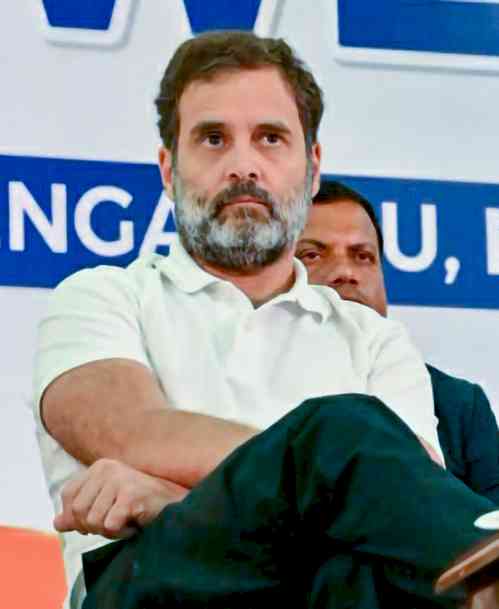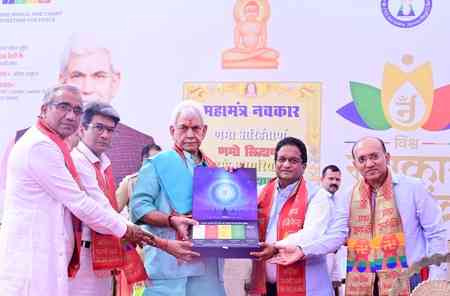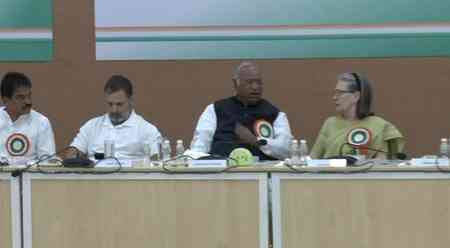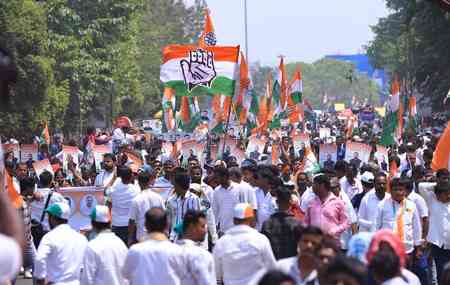Defamation case: 'Rahul displayed arrogance, his plea deserves to be dismissed', SC told
In his reply filed in the Supreme Court in the Rahul Gandhi defamation case, complainant BJP legislator Purnesh Modi has said that the former Congress president displayed "arrogance" and his plea "deserves to be dismissed with exemplary costs".

New Delhi, July 31 (IANS) In his reply filed in the Supreme Court in the Rahul Gandhi defamation case, complainant BJP legislator Purnesh Modi has said that the former Congress president displayed "arrogance" and his plea "deserves to be dismissed with exemplary costs".
The reply document stated that subsequent to his conviction, the Congress leader, in a press conference, said that he would never apologise "as he was not a Savarkar but a Gandhi".
"At the time of sentencing before the trial court, the petitioner (Rahul Gandhi) far from being repentant or contrite, displayed arrogance. He said he did not seek any mercy from the Court and would not apologise for any harm to reputation of the persons he had defamed," said the counter affidavit filed before the top court opposing Rahul Gandhi's plea for stay of conviction.
It further said that Gandhi's attitude "disentitles him to any relief in the form of stay of conviction as it reveals arrogant entitlement, rank insensitivity to an offended community and contempt for the law".
"It is a settled law that stay of conviction is granted in the rarest of rare cases for exceptional reasons. The petitioner's (Rahul Gandhi's) case manifestly does not fall in that category," added the reply further.
Further, it said Rahul Gandhi made the defamatory statement out of "personal hatred" towards an elected Prime Minister of the country, and "deserves no sympathy" on the question of the sentence imposed.
The counter affidavit said that Gandhi had "disreputable antecedents".
It referred to his criminal prosecution in the National Herald case, where he is on bail and the other case relating to defamation of Veer Savarkar.
It said that the decisions of the lower court sentencing Gandhi was "totally justified" and the high court's refusal to interfere with the Sessions Court"does not disclose any error" and is based on "sound reasons".
On July 21, the Supreme Court agreed to examine the plea filed by former Congress President Rahul Gandhi against the Gujarat High Court's verdict denying to put a stay on his conviction in the 'Modi surname' defamation case.
A bench comprising Justices BR Gavai and Prashant Kumar Mishra had issued a notice on the question as to whether the conviction should be suspended or not. The bench did not pass any interim relief on Gandhi's plea praying for suspension of his sentence.
The High Court's refusal to stay his conviction and two-year jail term in a criminal defamation case, has cost the Congress leader his Lok Sabha membership.
The court had sought responses of the Gujarat government and Purnesh Modi on Rahul Gandhi's plea. It had posted the matter for hearing on August 4.
On July 15, the Congress leader had approached the Supreme Court challenging the Gujarat High Court's order where a bench of Justice Hemant Prachchhak had observed that granting a stay on his conviction would be an exception, and not a rule.
Rahul Gandhi was disqualified as a Member of Parliament in March, after a Surat court convicted him and sentenced him to two years in prison for his "How come all thieves have Modi as the common surname" remark made during an election rally in Karnataka in April 2019.
Rahul Gandhi's 2019 remark was interpreted as an attempt to draw an implicit connection between Prime Minister Narendra Modi and fugitive businessmen Nirav Modi and Lalit Modi.
In March, the sessions court in Surat had dismissed Rahul Gandhi's plea seeking suspension of his conviction by the magistrate court, stating that his disqualification will not result in an irreversible loss to him.
The Congress leader was disqualified under a rule that bars convicted MPs from holding Lok Sabha membership.


 IANS
IANS 








